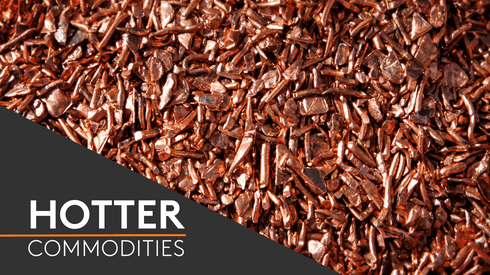Lance Hooper said the Canadian resource company, which has an exploration and development business including assets in the DRC, is extending its own blockchain pilot project in the country and is in talks with a couple of large mining companies to trial its technology.
A similar move is planned with artisanal mining in the DRC, which accounts for about 10% of the world’s cobalt supply. However, artisanal mining is often associated with issues such as child labor and conflict zones, leading to ethical sourcing concerns from original equipment manufacturers (OEM) such as consumer electronics and technology firm Apple and automakers Volkswagen and BMW.
”We’re hoping to get a couple of pilots set up this year beyond our own project, but also other artisanal mining sites and then at least one or two big mining companies that want to look at blockchain,” he told Fastmarkets in an interview.
“Some of the large miners are looking to do it [blockchain] internally, but there are others that are looking for a third-party platform. Cobalt in the DRC is the natural fit but there are certainly other miners, whether gold, diamonds, or other strategic metals,” he added.
COBC has co-developed and is deploying a proprietary blockchain-based certification protocol called Mintrax that will be piloted on its own cobalt operations with the goal of ensuring a transparent, secure, and responsible mineral supply chain.
The project, a joint venture with DLT Labs Inc, is based on IBM’s Hyperledger Fabric and the Ethereum blockchain. Mintrax also works with due diligence design firm BetterChain.
A global drive towards electro-mobility caused the price of cobalt, a key raw material in the production of batteries for electric vehicles, to reach near 10-year highs in April 2018 of $43.70-44.45 per lb. Prices have eased in recent months amid good availability of metal and high inventories.
Fastmarkets assessed the benchmark standard-grade cobalt price at $15.15-16 per lb on Friday March 1, down from $15.35-16.40 per lb midweek.
Hooper said that the company would like to see changes to the ethical supply chain model, which currently relies on the local exporter to pay supply chain responsibility costs.
“Is there a way to engage consumers and change the model a bit so traceability is paid for by consumers, and then part of that fee is a pool of money that goes back into mine sites and the communities in and around them?” he said.
“It’s a long vision and there’s probably a long way to go to achieve it. But there’s early interest from some very serious downstream users, so we’ll see how things go this year,” he added
Projects
In the DRC, the company has two joint venture agreements for cobalt-copper concessions, as well a commercial partnership at Traxys’ cobalt hydroxide plant in Lubumbashi. As part of the agreement with Traxys, COBC will invest as much as $2 million to commission the plant toward its full production capacity.
COBC holds DRC export trading licenses for cobalt, copper, tin, tantalum and tungsten, and already has supply and offtake agreements for 40,000 tonnes of cobalt concentrate annually. Hooper said the goal is to build out the company’s trading business, not just in the DRC but across the African continent.
Artisanal mining will play a key role here. Over 2 million artisanal miners in the DRC rely on this revenue stream for their livelihoods, and Hooper said COBC is not trying to eliminate them but instead professionalize them.
The company – which is already operating in areas where artisanal and small-scale miners are active – is bringing in geologists and engineers to help artisanal miners better understand mineralization, ensure techniques are safe, and provide equipment, among other things.
“We’re thinking beyond the mine site and looking for opportunities for artisanal miners once we’re gone,” Hooper added.




